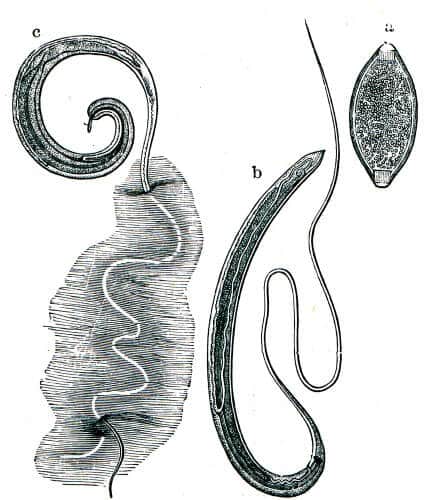The scientists estimate that the discovery will make it possible to develop new types of drugs for inflammatory bowel diseases, rheumatoid arthritis, multiple sclerosis, diabetes and autism following the mapping of the genes of the parasitic worm in pigs by the researchers of the Global Research University of Melbourne

About 230 years ago he discovered Edward Jenner The connection between smallpox and cowpox and how this connection can be used for a safe vaccine. Now this method is being applied again, as researchers in Australia have discovered that parasitic worms from pigs may protect infected humans from a host of human diseases, and without causing harm, at least as far as is known.
The scientists estimate that the discovery will make it possible to develop new types of drugs for inflammatory bowel diseases, rheumatoid arthritis, multiple sclerosis, diabetes and autism following the mapping of the genes of the parasitic worm in pigs by the researchers of the Global Research University of Melbourne.
The lead researcher, Dr. Aaron Jacks from the Faculty of Veterinary Sciences said: "We know that in humans who were infected with the pig whipworm, which is not harmful to them, the symptoms related to autoimmune diseases were reduced. Now that we have deciphered the genetic sequence of the worm, this opens the door to designing new drugs and treatments for humans."
Although this worm causes disease and death among farm animals, it does not cause disease in humans. In contrast to it, the human whipworm which infects about a billion people, mainly children in developing countries - causes dysentery, malnutrition and delayed physical and mental development.
The co-researcher, Prof. Robin Gasser from the Faculty of Veterinary Sciences said: "The genes tell us about the proteins that the worm uses in order to communicate with our immune system. Knowing the function and molecular structure may be useful for understanding autoimmune diseases in humans."
Researchers from 11 research institutions from six countries participated in the study published in the journal Nature Genetics.

3 תגובות
I don't know about autoimmune diseases, but I read a study that talked about the fact that in third world countries far fewer people suffer from allergies than in the western world because of the excess sterility that the western world suffers from. There may also be less autoimmune diseases in third world countries
jubilee
I don't know how to answer you, but think about the following point: a muscle that is used a lot gets stronger, a muscle that is not used degenerates.
Maybe this is also true for the immune system? The result will be the opposite of what you wanted.
Again - this is not an answer to your idea...
I'm guessing that any infection in the body reduces autoimmune activity, as the immune system has to deal with the new infection and has less resources to do autoimmune problems.
what do you think?